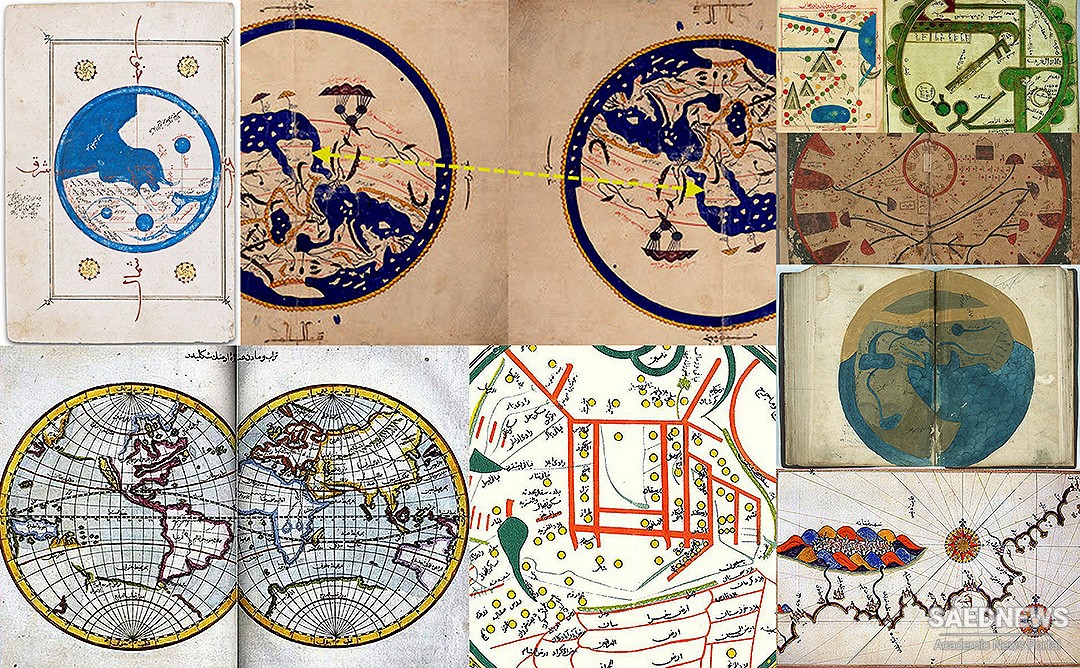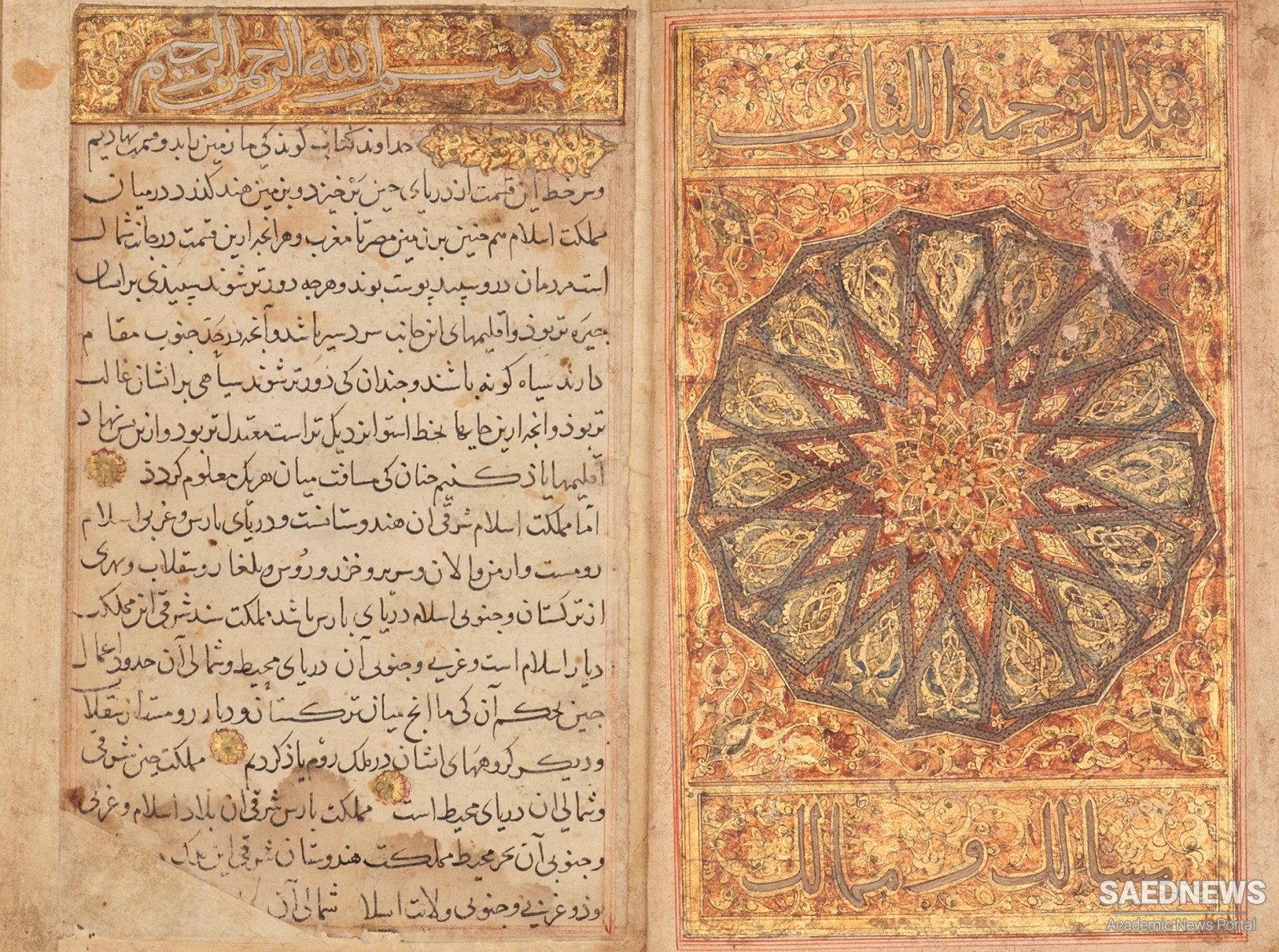Abu'l-Qasim Ubaydallah ibn Abdallah ibn Khordadbeh (c. 820 – 912), better known as Ibn Khordadbeh or Ibn Khurradadhbih, was a Persian geographer and bureaucrat of the 9th century. He is the author of the earliest surviving Arabic book of administrative geography. The Book of Roads and Kingdoms (Arabic: Kitāb al-Masālik wa’l- Mamālik) is a 9th-century geography text by the Persian geographer Ibn Khordadbeh. It maps and describes the major trade routes of the time within the Muslim world, and discusses distant trading regions such as Japan, Korea, and China. It was written during the reign of Al-Mu'tamid in around 870 CE while its author was Director of Posts and Police for the Abbasid province of Djibal. The work uses much of the Persian administrative terms, gives considerable attention to pre-Islamic Iranian history, uses "native Iranian cosmological division system of the world". These all show "the existence of Iranian sources at the core of the work". Claudius Ptolemy, Greek and Pre-Islamic Iranian history have clear influence on the work. The book is also referred to in English as The Book of Roads and Provinces.
He was the son of Khordadbeh, a Zoroastrian from Khurasan who converted to Islam. By ca. 815, Abdallah served as the governor of Tabaristan, and conquered the mountainous regions of Tabaristan from the local Bavandid ruler Sharwin I. During the same year, he campaigned in Daylam, where he conquered two cities and captured its ruler Abu Layla. In 817, he aided Mazyar, an Iranian prince, to escape from Tabaristan and reach the court of the Abbasid caliph al-Ma'mun. Abdallah was also a friend of the Persian musician Ishaq al-Mawsili. Not much more is known about Abdallah; he had a son named Abu'l-Qasim Ubaydallah, better known as Ibn Khordadbeh, who was born in 820 in Khurasan and was later raised in Baghdad, where Abdallah probably then resided. He thereafter disappears from sources, and later died at an unknown date in the 9th-century (Source: Peoplepill).



 Muhammad Ibn Ibrahim Al Fazari: Iranian Astronomer and Mathematician
Muhammad Ibn Ibrahim Al Fazari: Iranian Astronomer and Mathematician














































